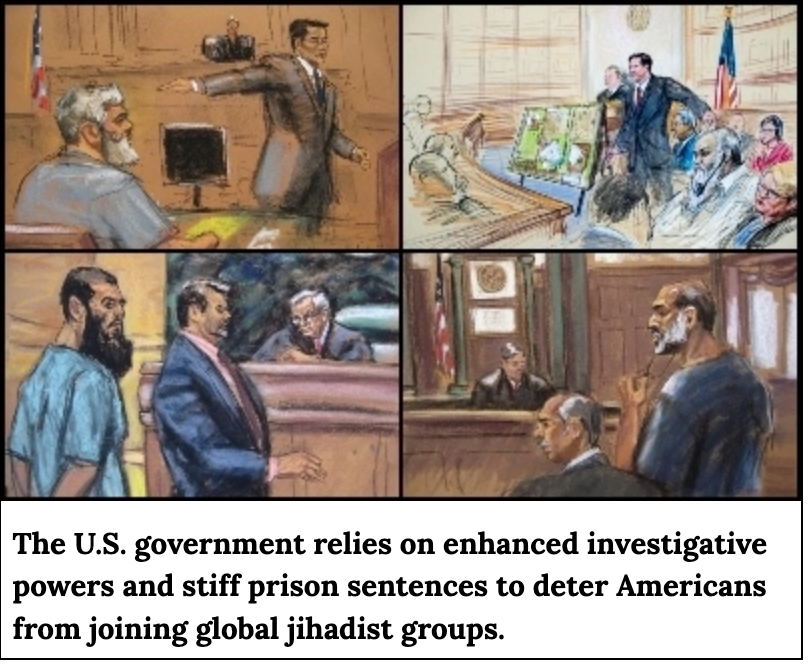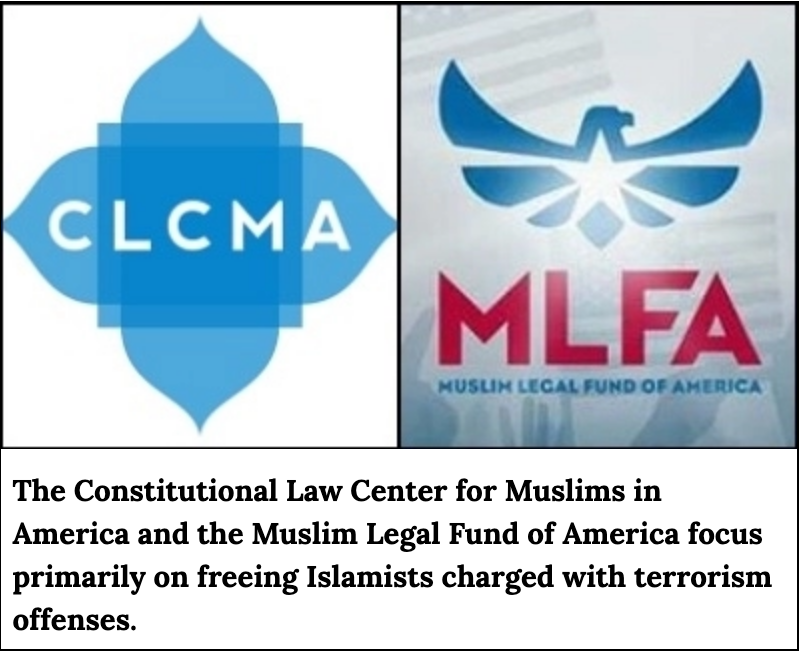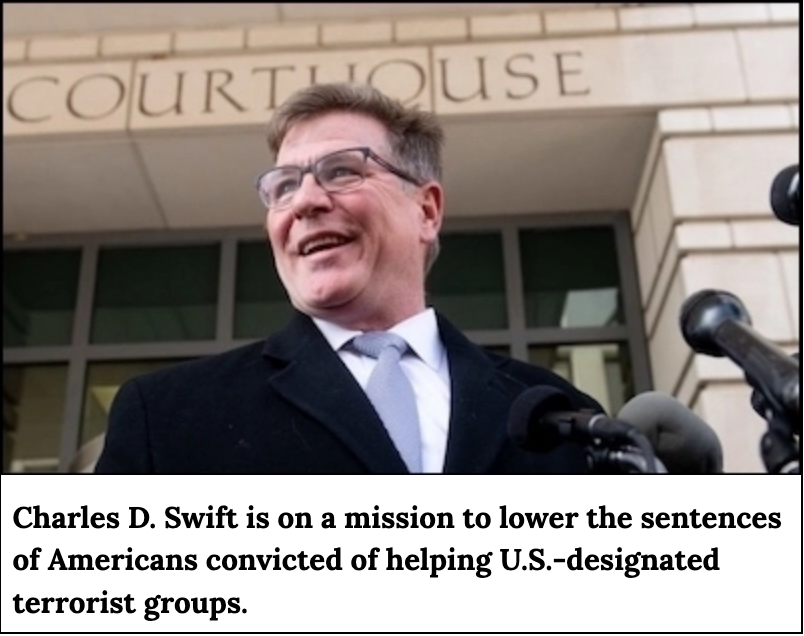
A consequential legal battle is underway with potential to decide whether tough post-9/11 sentencing laws will remain in place. Those who join and aid jihadist terror groups like ISIS, and (believe it or not) their supporters, hope against hope for as little consequence as possible when terrorists get caught. Homeland security leaders, federal prosecutors, and perhaps most Members of Congress hope against hope they’ve done all they can to deter Americans from joining global jihadist groups that want to kill fellow citizens.
By Todd Bensman as originally published in TownHall.com on July 9, 2019
U.S. homeland security leaders, federal prosecutors, and perhaps most Members of Congress hope against hope they’ve done all they can to deter Americans from joining global jihadist groups that want to harm their own country and kill fellow citizens. Enhanced investigative powers and stiff prison sentences are the tools of the trade.
By the same token, those who join and aid jihadist terror groups like ISIS, and (believe it or not) their supporters, hope against hope that there’ll be as little consequence as possible when terrorists get caught and perhaps too that the system does not abuse them.
Between these two interest groups right now, a consequential legal battle is underway with potential to decide whether tougher post-9/11 sentencing laws will remain in place to deter American terrorists from making jihadist life choices, or whether punishments for supporting terrorism is blindly onerous. A scenario is that the question gets appealed to the U.S. Supreme Court, though it’s early still.
As I’ve written already here and most recently here, the dispute is being waged in the U.S. 5thCircuit Court of Appeals in Texas. That’s where outraged prosecutors appealed U.S. District Judge Lynn Huges’s 18-month prison sentence to Asher Abid Khan instead of their 15-year recommendation. They call the sentence “an extreme outlier” for the type of charge to which the 24-year-old University of Houston engineering student pleaded guilty.
The charge for materially supporting ISIS was related to an abortive 2014 attempt by Khan to join ISIS in Syria with a recruited high school friend. Khan turned around and went home to Texas, then helped Sixto Ramiro Garcia go on to be killed in action. Federal prosecutors had asked Reagan-era district Judge Hughes for the fairly standard 15-year sentence for such criminal activity but, believing the judge’s sentence dangerously meager and threatening the government’s overall ability to deter terrorists, went to the higher court for an overturn.
Now the fight has been joined on Khan’s side by the Richardson, Texas-based Constitutional Law Center for Muslims in America (CLCMA), which last month filed an Amicus brief arguing for Judge Hughes’ lower 18-month sentence.
As an aside, it’s worth noting that CLCMA is a project of, and funded by, the Muslim Legal Fund of America (MLFA), which formed to defend the Hamas-supporting Holy Land Foundation right after the government closed it on suspicions of financing Hamas. The Holy Land Foundation’s five principals were convicted 10 years ago for running the largest terrorism-fundraising operation in U.S. history, funneling at least $12 million straight to Hamas.
MLFA kept its expensive exoneration efforts alive for years of appeals after the 2008 convictions right up until the U.S. Supreme Court decided to let the convictions stand on strong evidence, even seeking presidential commutations for the men in 2012. The Muslim Legal Fund of America has been criticized for its singular-minded interest in defending Hamas convicts and other brands of terrorists.

Kyle Shideler, Director of Counter Islamist Grid, an organization that identifies and researches domestic Islamist groups in local U.S. communities, said he had a hard time seeing these legal defense entities as authentic “friends of the court” because of what they’re really probably after.
“Like MLFA, the CLCMA seems to be more interested in making sure Islamists are free to continue to provide funding to suspicious groups abroad than they are actually protecting constitutional rights,” Shideler said.
CLCMA’s website describes itself as a national public interest organization and 501 (C)(3) charity “dedicated to advancing and protecting the civil rights of Muslim Americans.” Led by attorney and retired Navy officer Charles D. Swift, CLCMA focuses on cases involving national security, including defending against terrorism-support prosecutions, trying to lower the sentences of Americans convicted of helping U.S.-designated terrorist groups and representing some of Guantanamo Bay’s al Qaeda prisoners.
Calls to Swift went unanswered by publication time.

CLCMA’s Amicus brief, filed June 11, amplifies an argument to one central question underlying the dispute that the appellate judges will have to decide: whether Khan’s motives, feelings, and intentions hit the threshold for a terrorism enhancement that can add many years to a prison sentence. The judge wouldn’t accept it.
For a terrorism enhancement to be applied in sentencing, Khan would have had to demonstrate “specific intent calculated to influence or affect the conduct of government by intimidation or coercion, or to retaliate against government conduct.”
But beyond Judge Lynn, CLCMA and Khan’s lawyers insist the enhancement shouldn’t apply because he joined ISIS only as a way to fight against Syrian President Bashar Al-Assad, not to coerce, intimidate or harm the American government. Even then, they argue, the Assad government couldn’t have been a victim of ISIS coercion because the United Stated government “derecognized” the regime as a legitimate authority.
Khan went “to help the Syrian people rather than to join and promote a terrorist state,” Swift argued, in part. “He never took an oath to wage war against America or its people. He never planned an attack on American targets. After arrest, (Khan) consistently participated in programs denouncing ISIS and at sentencing expressed his support for America. These actions put (him) in the category of the noble, but unwise and naïve Americans who have historically fought for foreign causes without consideration of the consequences of their actions.”
In their own brief, Houston prosecutors argued that Khan admitted traveling to join ISIS knowing full well that it was a foreign terrorist organization with a very well-known mission to target, coerce and influence United States policy and other governments besides Assad’s. Helping any part of that was helping ISIS target and coerce the United States.
Furthermore, the government prosecutors are arguing, evidence was presented that Khan expressed his “love” and near idolatry for the lectures of notorious al Qaeda recruiter Anwar Al-Awlaki who was so persuasive in his belief in violent jihad against Americans that the CIA killed him with a Hellfire missile. They pointed out that, far from just opposing the Assad regime, Khan emailed a friend that he “probably won’t be able to come back to America or Australia” if he goes to Iraq or Syria to “study sharia” because “I’ll be acting against their troops and agenda.”
Finally, even if Khan’s support for ISIS had been directed against the Assad regime only, doing so would affect other foreign governments’ conduct because it would free up other ISIS resources to fight against Iraq, Canada, Belgium, France, the United Kingdom, and the United States.
To be continued…